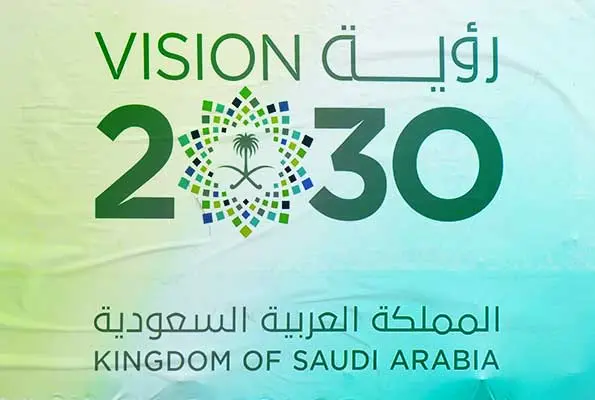Saudi Arabia’s “Vision 2030” economic diversification agenda hinges on building new industries beyond oil, and gaming has emerged as one of the centrepieces. Entertainment spending is set to leap from 2.9% of household budgets to 6% by 2030, with cultural projects like Qiddiya (a USD 9.8 billion entertainment complex) expected to draw 17 million visitors annually.
By investing in video games, Riyadh taps into a fast‑growing global market that, at over USD 200 billion, rivals film and music. Gaming fits Vision 2030’s goals by diversifying the economy and creating jobs, and analysts estimate the entertainment sector could contribute over USD 23 billion to GDP and 450,000 jobs by 2030.
More broadly, sports, media, and culture are being promoted as new growth engines, from building cinemas (Saudi Arabia lifted its 35‑year cinema ban in 2018) to hosting music festivals and sporting events.
The recent news that the Public Investment Fund (PIF) is eyeing a USD 55 billion leveraged buyout of Electronic Arts (EA) exemplifies this strategy. Joost van Dreunen of NYU notes that the deal “puts a trophy IP house at the tip of the Saudi Vision 2030 spear,” backed by a state that has earmarked some USD 38 billion for gaming as a form of soft power and long-term revenue.
In practice, PIF already owns stakes in Activision Blizzard and minority holdings in Nintendo and Take-Two. By bringing EA in‑house, the Kingdom gains popular franchises and developer expertise. PIF also envisions synergies. For example, its Qiddiya “City of Play” will host a USD 10 million prize esports tournament and aims to incubate 30 game studios by 2030, turning gaming IP into tourism, training, and secondary industries.
However, the move carries risks and criticisms. Critics warn of “gameswashing”—using video games as a tool to polish Saudi Arabia’s image, much as the country has done with sports. Author James Montague notes this is Muhammad bin Salman’s most personal and high-profile sports investment yet, given Saudi Arabia’s young online population.
Others question how the PIF will recoup such an enormous outlay. In theory, profits from global game sales and royalties will flow back into the Saudi budget, and the hope is that localising game development will stimulate a new technology sector. But operating costs, potential boycotts, or regulatory pushback could complicate returns.
It is also interesting to note that Muhammad bin Salman, the crown prince of Saudi Arabia, is a gamer. He has reported that playing video games is his favourite hobby and that he is especially interested in a strategy game called “Age of Empires,” a game based on history and how to build empires by managing population and resources and bolstering trade.
The idea that MBS, the “gamer crown prince,” once strategised in “Age of Empires” is invoked to humanise the drive, making the massive investment in gaming seem like a logical extension of long-held fascination.
This personal resonance helps with internal legitimacy, for a young, digitally native population may see this not just as state-driven industrial policy but as aligning with the interests of their leader. In a society where nearly 70% of the population is under 35, that alignment can be politically useful.
Ultimately, the EA bet is part of a broader Vision 2030 push into culture and media. Saudi Arabia is spending heavily on film festivals (e.g., Red Sea Film Festival), concerts, and theme parks. By embedding itself in gaming and entertainment, the Kingdom hopes to diversify incomes, employ tech talent, and burnish its global brand.
As Reuters puts it, “Saudi Arabia is now dominating the global gaming space,” making interactive media “one of the most lucrative entertainment sectors” under its sway. The gamble on games, if managed carefully and mitigated against cultural backlash, could pay off by transforming how the Kingdom earns and spends, but it will be watched closely as a test of Vision 2030’s broader cultural ambitions.


